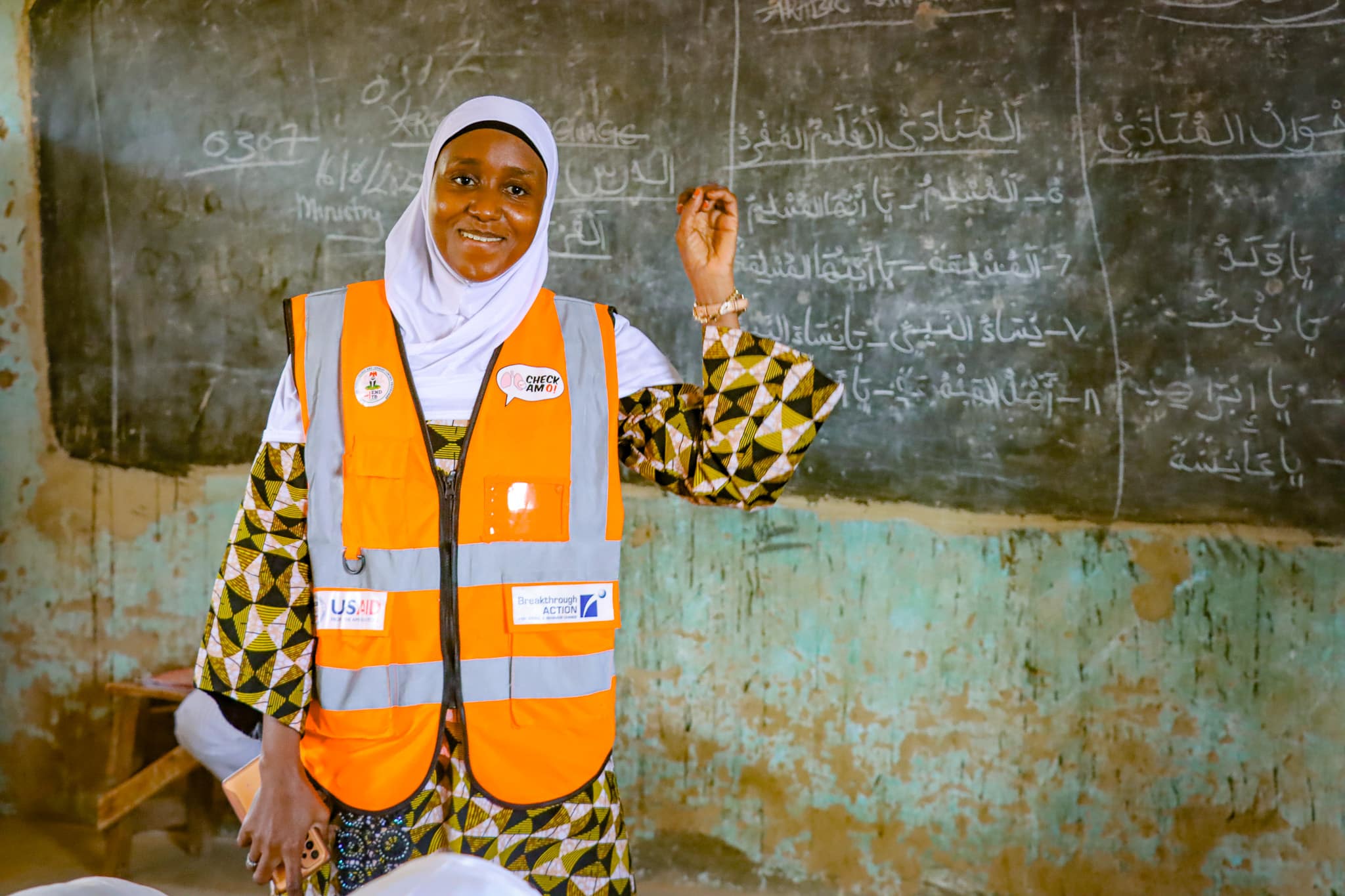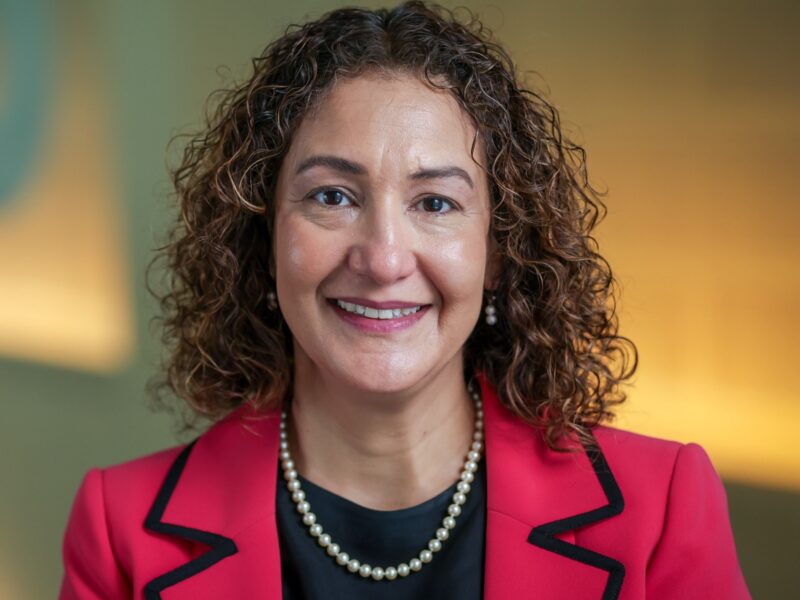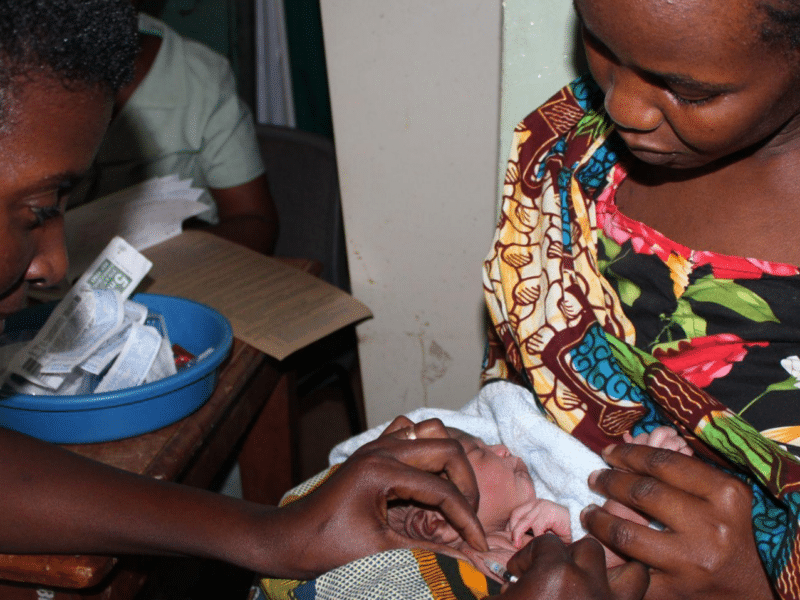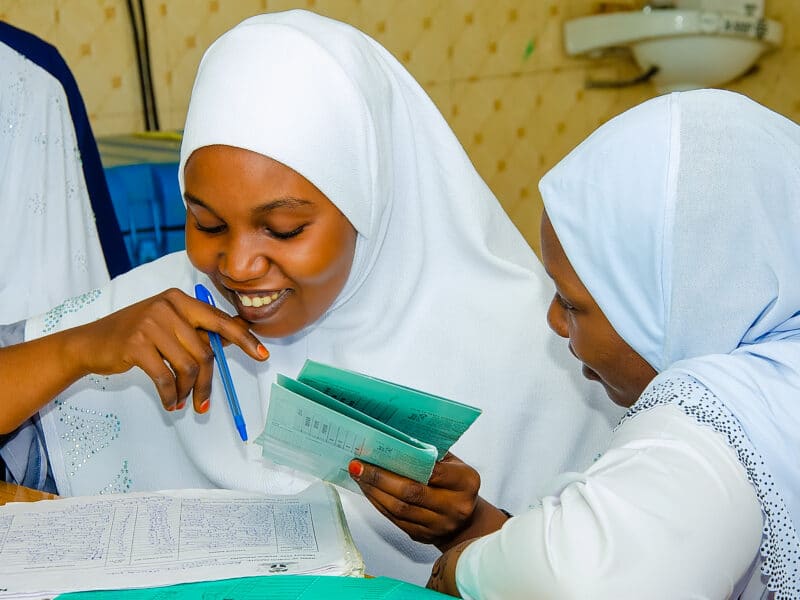An extensive tuberculosis (TB) social and behavior change campaign developed by the Johns Hopkins Center for Communication Programs with the Nigerian government and local stakeholders has contributed to a dramatic increase in the number of TB cases identified and treated in the country.
This research and three other abstracts from the CCP-led Breakthrough ACTION-Nigeria project will be presented at the Union World Conference on Lung Health, the world’s largest gathering of those working to end the suffering caused by lung disease. The gathering runs from Nov. 15 through 18 in Paris.
Identifying TB cases, which often go undetected and untreated, is a major step in reducing the spread of the deadly lung disease and has been a goal of Breakthrough ACTION-Nigeria since 2019. Undetected cases can be dangerous not just for the people who have TB themselves, but for anyone around them who could acquire it. TB remains a huge public health concern in Nigeria, which has the highest burden of disease in Africa.
“We have been on a journey to change the face of TB in Nigeria,” said CCP’s Bolatito Aiyenigba, deputy project director of Breakthrough ACTION-Nigeria. “We were able to get Nigerians interested and engaged with new materials and new resources. Nigeria has now increased TB case finding from 24 percent to 68 percent now.”
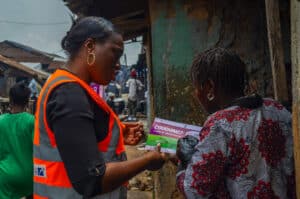
Photo: Valentine Edoziem
A human-centered design process conducted at the beginning of the project revealed that many Nigerians either did not understand the threat of TB or know how to appropriately seek testing and treatment for it. TB-related stigma and discrimination were also high. Nigerians typically undergo long treatment journeys, often going to multiple places for help – such as local chemists or to religious and traditional leaders – before finally going to a health facility.
So the team set out to simplify and de-stigmatize the process in a number of ways, with a campaign strategy that aimed to shift the tone of TB social and behavior change interventions from fear-based to confidence building. While many previous TB SBC initiatives in Nigeria had used fear-based approaches, the “Check Am O!” (Go and Check It!) campaign produced new materials with animation instead of scary pictures of people who have TB and used bright, friendly colors to catch attention. The television and radio spots they created portrayed community members encouraging people who had been coughing for two weeks or more to go for a TB test.
Aiyenigba and her team found that after two years of the campaign, 80 percent of people in a survey recalled being exposed to “Check Am O!”
Another element of the TB work was improving a national hotline which people could call if they had concerns about cough. After the start of the “Check Am O!” campaign and upgrades to the call center, there was a 530 percent increase in the number of calls (more than 790,000 total) received between January 2021 and December 2022.
And 70 percent of the callers said they had learned about the hotline through the campaign’s radio and television spots.
Breakthrough ACTION-Nigeria also worked with religious leaders.
“One of the places people go when they think they might have TB is the religious centers, or to meet religious leaders, because we Africans are quite superstitious and TB may look like a spiritual attack, or a punishment from the gods or something very sinister,” says CCP’s Olatunde Toluwase, senior program officer of Breakthrough ACTION Nigeria. “So they tend to go to religious centers to seek a spiritual or divine intervention.”
In response, Breakthrough ACTION successfully trained more than 1,500 religious leaders to not only give them greater knowledge about the symptoms and the burden of the disease, but to help them refer their congregants to health centers if they had symptoms suggestive of TB. Nearly 300,000 people were reached with TB messages shared by leaders of the Christian and Muslim faiths over two years, with more than 12,900 referred for testing.
Aiyenigba will also present findings on a pilot program that provided a single training session to schoolteachers about TB with the aim of having them educate their students (with the hope that the children would also share the knowledge with their families) and refer their students for testing if needed.
“We found a big gap about TB knowledge among the teachers before the training, with appreciable increase in knowledge, immediately after the training,” she says. “It demonstrates the fact that if we engage teachers, who will get to the children who are likely to have TB, we can increase TB case finding among children.”
The teacher training has already been expanded to many other schools.

